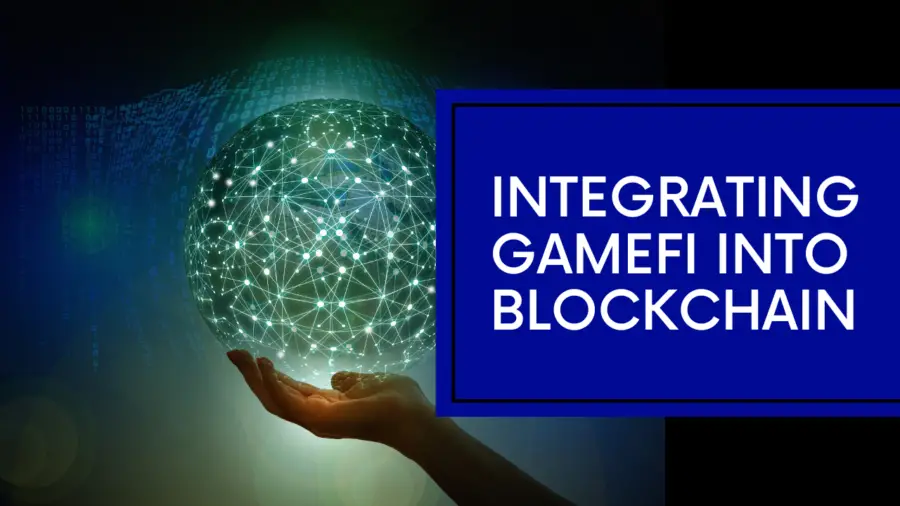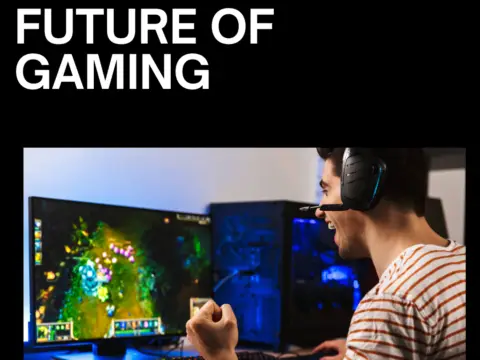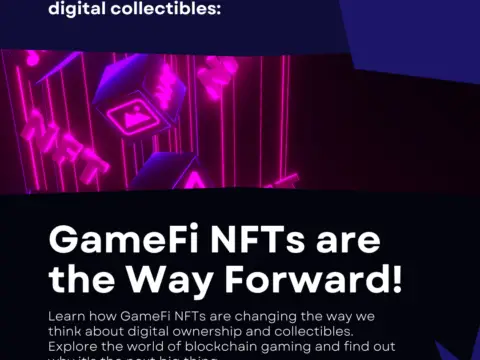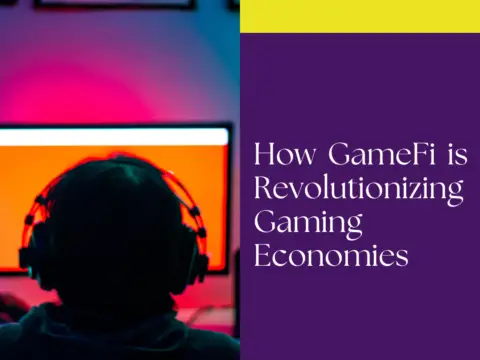GameFi, the fusion of gaming and decentralized finance (DeFi), represents a groundbreaking trend in the blockchain space. By leveraging blockchain technology, GameFi platforms offer innovative solutions that revolutionize gaming experiences and economic models. Let’s delve into how GameFi integrates with blockchain:
1. NFTs and In-Game Assets:
Tokenization of Assets: Blockchain enables the creation of non-fungible tokens (NFTs) representing in-game assets such as characters, items, and properties.
Ownership and Interoperability: NFTs provide players with true ownership of their in-game assets, allowing for interoperability across different games and platforms.
2. Play-to-Earn Mechanisms:
Decentralized Economies: GameFi platforms implement play-to-earn models powered by blockchain, where players can earn cryptocurrency rewards for their participation and achievements in games.
Tokenized Rewards: Blockchain facilitates the distribution of tokenized rewards in a transparent and verifiable manner, empowering players to monetize their gaming skills and time.
3. Decentralized Finance (DeFi) Integration:
Liquidity Pooling: GameFi projects leverage decentralized finance protocols to create liquidity pools, enabling players to stake assets, provide liquidity, and earn yields.
Decentralized Exchanges (DEXs): Integration with decentralized exchanges allows players to trade in-game assets and tokens directly, without the need for intermediaries.
4. Community Governance and Participation:
Decentralized Governance: Blockchain-based governance mechanisms enable community-driven decision-making processes, empowering players to vote on game development, features, and ecosystem upgrades.
Token-based Voting: GameFi platforms utilize utility tokens for governance, allowing holders to participate in voting and shape the future direction of the gaming ecosystem.
5. Immutable Game Logic and Provably Fair Gaming:
Transparent Game Mechanics: Smart contracts on the blockchain enforce immutable game logic, ensuring transparency and fairness in gameplay.
Auditable RNGs: Blockchain-based random number generators (RNGs) provide provably fair gaming experiences, where the outcomes of game events are verifiable and tamper-proof.
6. Cross-Platform Interoperability:
Interoperable Ecosystems: Blockchain facilitates cross-platform interoperability, allowing players to transfer assets and progress seamlessly between different games and virtual worlds.
Metaverse Integration: GameFi projects contribute to the development of the metaverse, a shared virtual space where games, social interactions, and economic activities converge.
7. Monetization of User-Generated Content:
Tokenized Creations: Blockchain enables the tokenization of user-generated content, such as custom skins, maps, and mods, allowing creators to monetize their contributions directly.
Decentralized Marketplaces: Decentralized marketplaces powered by blockchain enable peer-to-peer trading of user-generated content, providing creators with new revenue streams.
8. Licensing and Intellectual Property Rights:
Immutable Ownership Records: Blockchain records immutable ownership records for intellectual property rights associated with in-game assets and content.
Smart Contract Licensing: Smart contracts can automate licensing agreements and royalty payments, ensuring fair compensation for creators and rights holders.
Conclusion:
The integration of GameFi with blockchain technology unlocks unprecedented possibilities for gamers, developers, and investors alike. By leveraging the transparency, security, and programmability of blockchain, GameFi platforms create new paradigms for gaming, economics, and social interaction. As the GameFi ecosystem continues to evolve, blockchain technology will play a pivotal role in shaping the future of gaming and virtual economies.




